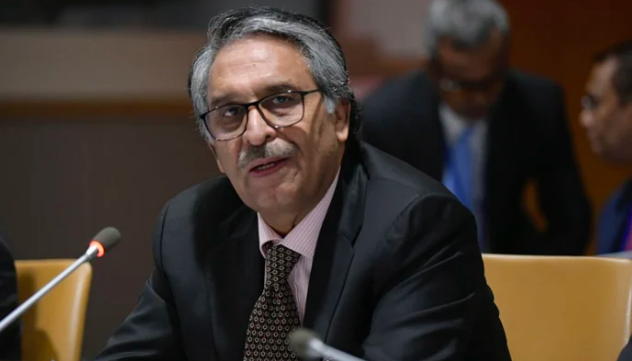In a firm and unequivocal response to the Indian Supreme Court’s recent verdict on Article 370, which had provided limited autonomy to the Indian Illegally Occupied Jammu and Kashmir (IIOJK), Caretaker Foreign Minister Jalil Abbas Jillani, declared on Monday that New Delhi cannot evade its international obligations under the guise of domestic legislations.
Addressing the media during a press conference Minister Jillani expressed Pakistan’s dismay at the Indian Supreme Court’s validation of the Narendra Modi-led government’s controversial decision to abrogate Article 370 back in August 2019.
“Jammu and Kashmir is an internationally-recognised dispute, which remains on the agenda of the UN Security Council for over seven decades. The final disposition of Jammu and Kashmir is to be made in accordance with the relevant United Nations Security Council Resolutions and as per the aspirations of the Kashmiri people,” the minister said.
He added that India had no right to make unilateral decisions on the status of this disputed territory and that too against the will of the Kashmiri people and Pakistan.
“India cannot abdicate its international obligations on the pretext of domestic legislations and judicial verdicts. Its plans to annex IIOJK are bound to fail. The judicial endorsement of India’s unilateral and illegal actions of 5 August 2019 is a travesty of justice, based on distorted historical and legal arguments,” the minister noted.
“The Indian Supreme Court’s verdict fails to recognise the internationally-recognised disputed nature of the Jammu and Kashmir dispute. It further fails to cater to the aspirations of the Kashmiri people, who have already rejected India’s illegal and unilateral actions of 5 August 2019. The judgement is yet another manifestation of the pliant judiciary under India’s ruling dispensation.”
“Restoration of statehood, conduct of State Assembly elections or similar steps cannot serve as a substitute to the grant of the right to self-determination to the Kashmiri people,” he said, adding the judgment could not brush aside the sheer violations of human rights in the Indian illegally Occupied Jammu and Kashmir.
“India’s unilateral and illegal measures since 5 August 2019 have been aimed at changing the demographic structure and political landscape of the IIOJK, in flagrant violation of international law and the relevant UN Security Council Resolutions, especially Resolution 122 (1957),” the minister stressed.



